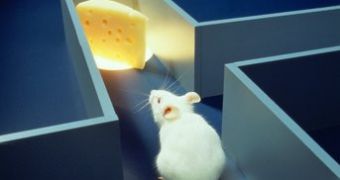Microbiology brings the goal of therapeutic memory erasure even closer to reality. Tests done on traumatized mice revealed that, by activating certain proteins in the brain, tragic memories can be totally erased and forgotten. In idle lab mice, the new therapy revealed that a month-old memory was totally disposed off, without any effect on other long-term memories. The research is the second path scientists discovered towards the same objective.
The Medical College of Georgia research team used a protein dubbed α-CaMKII in their study. By boosting the normal levels of this protein in the brain, they were able to discover that it played a significant role in the storage and retrieval of memories. Increased α-CaMKII amounts, delivered to the test subject just as it received the same stimuli that triggered the bad memory in the first place, determined the brain to completely erase both memories altogether.
Over the past couple of years, scientists' conception on human memory has changed considerably. Until recently, everyone believed that memories were a part of the actual brain and that they could never be removed without severe damage to the cortex. However, some researches in the field proved this to be false. Furthermore, the activity of certain proteins was linked to the formation and storage of long-term memories. Certain enzymes, delivered in the right quantities, can disrupt these proteins and erase some or all memories completely.
In the current research, scientists from the East China Normal University in Shanghai observed the behavior of mice subjected to electric jolts over a period of 2 months. They uncovered that increased α-CaMKII amounts in their brain completely wiped out the memory of the shock. This was further proven when the amounts of this protein were reduced to normal and the mice were introduced in the same room that shocked them before. Nothing happened, researchers say.
This type of research could lead the way to various medical applications for selective memory erasure, in people trying to forget traumatizing events in their past. Some argue about the ethics behind this type of therapy, while others will have none of it. However, people suffering from nightmares all the time might appreciate their new option.

 14 DAY TRIAL //
14 DAY TRIAL //